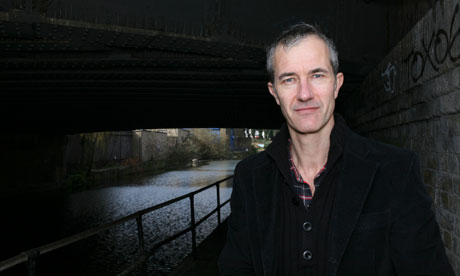
Geoff Dyer has long been the most productive of slackers. He measures out his decades in generous essay collections, like this one, and in between times writes his languid, elegant, brilliantly conversational novels and books – a dozen at the last count – that tend to insist that his principal subject is lassitude, procrastination, self-doubt, even while materially proving the opposite. He gives genuine deadline-dodgers and excuse-inventors, with unwritten and never-to-be-written books piling up around them, a bad name. Though Dyer seems convinced that he is a premier-league time-waster, no experience or impression in his writing and travelling life, no idle hour on a long-haul flight or jet-lagged evening in a foreign hotel, is beyond anecdotal redemption. "I write about whatever happens to interest me," he notes in the introduction here. "It's a job for life, more accurately, it is a life, and hardly a day goes by without my marvelling that it is somehow feasible to lead it."
As a critic, Dyer always gets his qualified lack of qualification for the role in first, which makes the humanity and dazzle of his insights all the more likable as they unfold. The manner was established early and reached its perfect pitch in Out of Sheer Rage, his book about being unable to write a book about DH Lawrence, which among many other things was an hilarious and unanswerable dismantling of the dry pomposity of Eng Lit, and a manifesto for Dyer's own approach: that beguiling mix of accidental knowledge and genuine excitement, of sudden inspiration and honest boredom, an insistence that love for a book or a musician or a painting or a photograph is never something that can be separated from a writer's own life, but is intimately involved in it.
The circumstances of seeing or reading something are always at least as important to Dyer as the object of his easily distracted attention; thus his essay on JMW Turner begins, winningly: "I'm not entirely sure that this (see plate 7) is the picture I'm writing about" and goes on to describe how at "some point in the last decade I was killing time – however quickly it passes there are odd pockets that need somehow to be disposed of – at Tate Britain, cruising the Turners", before suggesting that one painting, possibly but not necessarily the one at hand, gave him such a jolt that "I took some notes that I've been unable to locate and which I never got around to writing up properly". If what followed was not a brief and fabulous meditation on the importance of precision and haziness in Turner's vision of light, would this intro be annoying? Possibly, but the question never arises.
Quite properly, like several of Dyer's quixotically stoned adventures, this book seems constructed as a vague quest. You move through the unusually lit rooms of the author's fascinations – with photographers ranging from Larry Burrows to Martin Parr – through "verbals" (including two pre-Out of Sheer Rage essays on Lawrence, which incongruously find Dyer in somewhat restrained and anonymous voice); you get to hear further improvised jazz themes, which pick up where Dyer's sketchily definitive lives of the bebop artists, But Beautiful, left off, and you end up fully in the company of the author himself.
Dyer is becoming, in these latter pieces of memoir and comical self-observation, a character just as arch and seductive as that professional self-effacer from the previous generation, Alan Bennett. He too is the provincial boy – from a working-class family in Cheltenham, in Dyer's case – up at Oxford, the arriviste who, despite all subsequent appearances to the contrary, would have you believe he has never arrived. If Bennett's default position is social embarrassment, Dyer's is a vestigial unease at his sense of arrested development, a distant and unresolved nervousness that perhaps life should not be just a continuation of studenty habits and tastes. At one point, in an essay not wholly ironically named "Otherwise known as the human condition", he invites his readers to join him, aged 51, in his indefatigable search for the perfect cappuccino/doughnut combination in New York. Elsewhere he muses, with proper existential fascination, on the small moments of luck – not getting caught with a forgotten spliff in his pocket at Miami airport, say – that have allowed his life to continue to feel inadvertently charmed.
An only child himself – and one, as a he writes poignantly here, estranged by lifestyle from his parents – Dyer is determinedly childless; like many writers he sometimes seems to have reserved his nurturing instinct for his own narrated boyish self. As he observes, in a sharply funny recollection of his post-Oxford life on the dole: "A friend recently said that, for as long as he could remember, his dream of perfect happiness always centred on the idea of having a family (my idea of perfect misery)… my sense of perfect happiness has never progressed beyond a slightly archaic idea of Bohemia." There is a sort of heroism in this, and a sort of narcissism, and it is the mark of Dyer as a writer that he can play both for all they are worth, and keep both himself and his reader smiling.

